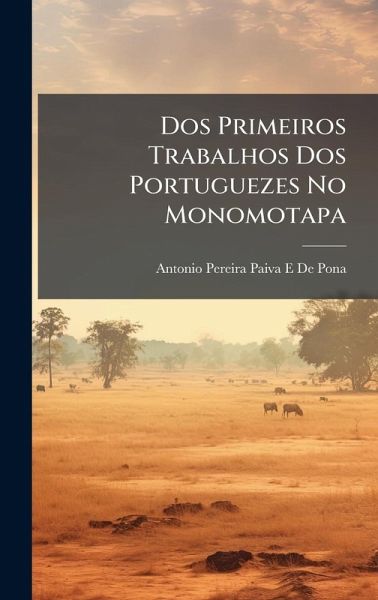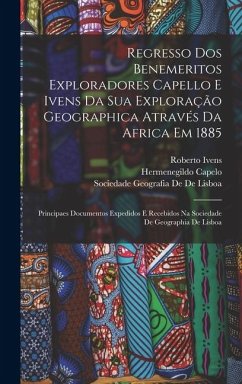
Dos Primeiros Trabalhos Dos Portuguezes No Monomotapa
Versandkostenfrei!
Versandfertig in über 4 Wochen
28,99 €
inkl. MwSt.
Weitere Ausgaben:

PAYBACK Punkte
14 °P sammeln!
"Dos Primeiros Trabalhos Dos Portuguezes No Monomotapa" explores the early endeavors of the Portuguese in Monomotapa, focusing particularly on Father Gonçalo de Silveira's mission in 1560. This historical account, presented at the 10th session of the International Congress of Orientalists, delves into the initial interactions between the Portuguese and the indigenous populations of the region. Authored by Antonio Pereira Paiva E De Pona, the book sheds light on the challenges and achievements of early Portuguese missionaries and explorers in their attempts to establish a presence in Monomotap...
"Dos Primeiros Trabalhos Dos Portuguezes No Monomotapa" explores the early endeavors of the Portuguese in Monomotapa, focusing particularly on Father Gonçalo de Silveira's mission in 1560. This historical account, presented at the 10th session of the International Congress of Orientalists, delves into the initial interactions between the Portuguese and the indigenous populations of the region. Authored by Antonio Pereira Paiva E De Pona, the book sheds light on the challenges and achievements of early Portuguese missionaries and explorers in their attempts to establish a presence in Monomotapa. It offers valuable insights into the cultural exchanges, religious conversions, and geopolitical dynamics that shaped the early colonial period in Africa. This work remains an important resource for understanding the complex history of Portuguese involvement in the region and its lasting impact. This work has been selected by scholars as being culturally important, and is part of the knowledge base of civilization as we know it. This work was reproduced from the original artifact, and remains as true to the original work as possible. Therefore, you will see the original copyright references, library stamps (as most of these works have been housed in our most important libraries around the world), and other notations in the work. This work is in the public domain in the United States of America, and possibly other nations. Within the United States, you may freely copy and distribute this work, as no entity (individual or corporate) has a copyright on the body of the work. As a reproduction of a historical artifact, this work may contain missing or blurred pages, poor pictures, errant marks, etc. Scholars believe, and we concur, that this work is important enough to be preserved, reproduced, and made generally available to the public. We appreciate your support of the preservation process, and thank you for being an important part of keeping this knowledge alive and relevant.












